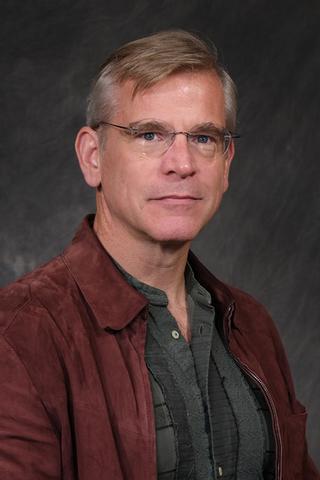
Wynne Center for Family Research
Welcome to the Wynne Center for Family Research
The missions of the Wynne Center for Family Research are to conduct clinical research to understand how family and relationship processes influence behavioral and biological bases of mental and physical health; to provide clinical research training for all levels in research skills and activities needed to conduct high-quality and relevant clinical research; and to disseminate clinical research findings to inform clinical practice and public knowledge.

Thomas G. O'Connor, Ph.D.
Principal Investigator
Selected Publications
O’Connor, T.G., Willoughby, M.T., Moynihan, J.A., Messing, S., Vallejo Sefair, A., Carnahan, J., Yin X., Caserta, M.T. (2019). Early childhood risk exposures and inflammation in early adolescence. Brain, Behavior and Immunity. PMID 31059804
Bachmann, C.J., Beecham, J., O’Connor, T.G., Scott, A., Briskman, J., Scott, S. (2019). The cost of love: financial consequences of insecure attachment in antisocial youth. Journal of Child Psychology and Psychiatry, 60, 1343-1350. PMID 31495929
O’Connor, T.G., Miller, R.K., Salafia, C. (2019). Placental studies for child development. Child Development Perspectives, 13, 193-198. PMID 31413725
O’Connor, T.G., Woolgar, M., Humayun, S., Briskman, J.A., & Scott, S. (2019). Early caregiving predicts attachment representations in adolescence: findings from two longitudinal studies. Journal of Child Psychology and Psychiatry, 60, 944-952. PMID 29904928
View All PublicationsAbout Lyman Wynne

A family therapist needs the skills of a conductor, the wisdom of a philosopher...the ability to converse in the unique language of teens, the diplomacy of a statesman, and an unshakable conviction that things could be worked out...
Dr. Wynne possessed all these qualities and more.
-- Marion Wolff, speaking at
Dr. Wynne's funeral, January 20, 2007
The family therapy field lost one of its greatest mentors and innovators when Lyman Wynne, MD, Ph.D., passed away in January 2007. His life is a remarkable illustration of the bio-psychosocial model, beginning with his mother’s long illness and eventual death from uterine cancer. This had a profound impact on Lyman Wynne, sparking his determination to dedicate himself to the alleviation of suffering, and continuing throughout his distinguished career.
Dr. Wynne initially decided to become a medical researcher and obtained a full scholarship to Harvard. During World War II, Dr. Wynne was assigned by the Army to attend Harvard Medical School, where he became a protégé of Erich Lindemann, a founder of grief therapy. That experience changed Dr. Wynne’s career path from cancer researcher to psychiatrist and ultimately, pioneering family therapist.
Following extensive training, he was called to service during the Korean War and was sent by the Public Health Service to help start a new research program at the National Institute of Mental Health (NIMH). The early years at NIMH were free-wheeling and creative, and Dr. Wynne joined some of the era's most brilliant minds in psychiatry. In the early 1960s, Dr. Wynne took a sabbatical to conduct an anthropological study of extended families in the Bekaa Valley of Lebanon. He also began a long participation in World Health Organization research on schizophrenia.
In 1971, Dr. Wynne left NIMH to come to the University of Rochester, where, in the Department of Psychiatry, he initiated the Division of Family Programs, which provided the foundation for the Institute for the Family. After six years as Chair, Dr. Wynne stepped down to focus more fully on family therapy and family research, beginning with the Rochester High-Risk Longitudinal Family Study, followed by the Finnish Adoptive Family Study of Schizophrenia. Dr. Wynne was active as a family psychiatrist, frequently seeing cases with his favorite co-therapist, his wife Adele.
In 1998, Dr. Wynne retired to Emeritus status but continued to publish the results of the Finnish Adoption Study with his Finnish colleagues, Pekka Tienari and Karl-Erik Wahlberg. These studies are extremely important in our understanding of the role of genetics in the development of serious mental illness; they document the interplay between genetics and family environment in the development of schizophrenia spectrum disorders.
Dr. Wynne was very active in the Rochester community, working to support families in the National Alliance for the Mentally Ill and treating some of the most difficult patients with serious mental illness.
Contact Us
Wynne Center for Family Research
601 Elmwood Ave
Rochester, NY 14642